Comprehensive and smart approach paves the way for Vietnamese healthcare to predict risks in advance
Speaking at the launching ceremony of "Smart healthcare for the community", Deputy Minister of Health Tran Van Thuan emphasized that "comprehensive healthcare, smart healthcare" is not only a technical concept but a fundamental shift in thinking about industry development.
He said the future of healthcare does not lie in high-rise buildings or modern equipment, but in the ability to reach each person faster, closer and more humanely.
“Technology must serve people, and people must be at the center of all policies,” said Deputy Minister Thuan.
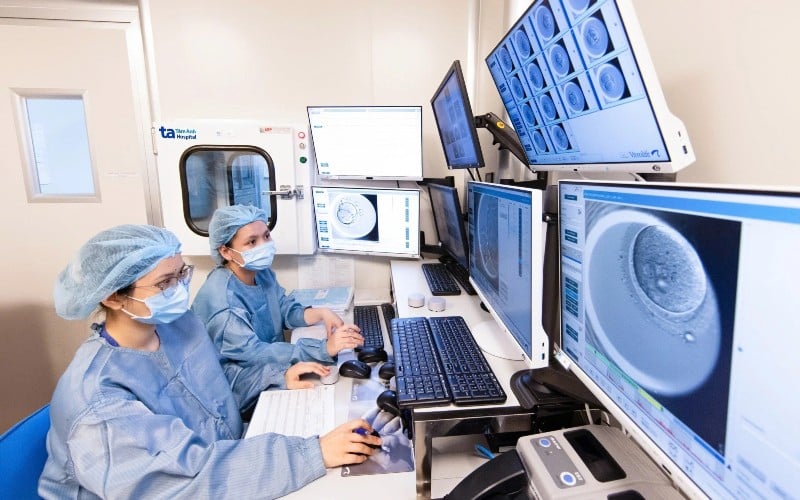 |
| The Ministry of Health is orienting the development of a smart health network at the provincial level. |
According to Deputy Minister Tran Van Thuan, this spirit is clearly demonstrated in the Party's major orientations. Resolution No. 72 of the Politburo , issued on September 9, 2025, affirms that health is the most valuable asset of each person and the whole society; caring for and protecting people's health is the top priority of the Party, the State and the entire political system.
In parallel, Resolution No. 57 on the development of science, technology, innovation and national digital transformation has identified healthcare as one of the important pillars. These are two strategic milestones leading the Vietnamese healthcare sector into a new era - modern, fair and humane.
In line with that spirit, the Ministry of Health has identified a strategic direction, taking the consolidation of primary health care as the foundation, promoting digital transformation as a breakthrough lever, aiming to make universal periodic health check-ups a reality by 2026 and free basic hospital fees from 2030. In particular, "Smart healthcare for the community" is a concrete demonstration of this vision.
Deputy Minister Tran Van Thuan shared that the health sector is steadfastly pursuing three major orientations. First of all, the Ministry of Health aims to build a system of periodic health examinations for the entire population, ensuring that each person is screened and early detected of diseases, especially non-communicable diseases, in a proactive, scientific and humane manner.
Second, the Ministry of Health is determined to ensure fairness in access to health services, meaning that whether in mountainous, remote or urban areas, all people have equal, fast and effective access to health care, associated with improving grassroots health capacity, modernizing commune health stations and promoting digital transformation throughout the system.
Third, the Ministry of Health aims to develop a smart healthcare network at the provincial level, where each locality not only implements digitalization but also proactively creates its own digital healthcare ecosystem, including electronic health records, remote examination, real-time disease warnings and diagnostic support using artificial intelligence. This is the foundation for Vietnam's healthcare sector to shift from reaction to prediction, from manual management to smart operation.
Regarding Hung Yen, the Ministry of Health has great confidence that the province has the foundation and internal strength to become a model for the whole country in smart healthcare. According to the goal in Resolution 72, by 2026, 100% of people will have regular health check-ups and disease screening at least once a year.
By 2027, each commune health station will need to have 4-5 doctors capable of examining, consulting remotely and providing basic treatment on-site. Along with that, the province will build a real-time epidemic warning system, connected to the province's Intelligent Operation Center (IOC) to support the government in making timely and accurate decisions.
Within the framework of the program, 1,000 people in Hung Yen province received free health examination, consultation and screening, focusing on non-communicable diseases and chronic diseases with high incidence.
People are assessed and screened for the risk of lung cancer, tuberculosis and other lung diseases through the application of artificial intelligence in reading chest X-rays, combined with spirometry to screen for chronic obstructive pulmonary disease, asthma, lung cancer and tuberculosis.
In addition, the program also assesses the risk of breast, thyroid and liver cancer; conducts blood tests, general examinations, measures blood pressure, weight, BMI, provides nutritional advice and guides people on how to use electronic health records to monitor and manage their health periodically.
Along with professional activities, the Vietnam Young Physicians Association presented 10 gifts to people in difficult circumstances and 10 gifts to children who overcame difficulties and excelled in their studies, with a total value of more than 40 million VND. The delegation also visited and expressed gratitude to Vietnamese Heroic Mothers in the province.
At the end of the program, Deputy Minister Tran Van Thuan emphasized that to make proactive health care a reality, we must create a grassroots health system that is strong enough, modern enough, and empathetic enough, where technology serves people, and people are at the center of all policies.
He expressed his belief that, from Hung Yen, with intelligence, determination and humanity, a model healthcare model will spread throughout the country. “Because, when each person is cared for early and accompanied throughout the health journey, it is not only an achievement of the healthcare sector, but also a symbol of a developed, kind and humane nation,” the Deputy Minister of Health affirmed.
“Connecting Vietnamese blood” - A journey of more than 30 years of spreading humanity and life
Over the past 30 years, from the call for "humanitarian blood donation", the voluntary blood donation movement has become a regular activity, imbued with humanity, spreading love and responsibility of the whole society.
Millions of donated blood units not only bring life and hope to tens of thousands of patients, but also demonstrate the good character of the Vietnamese people: kindness, solidarity and affection.
This proud achievement was achieved thanks to the close attention and direction of the Party, the State, the Ministry of Health and the National Steering Committee for Voluntary Blood Donation, together with the participation of all levels of government, organizations and the unanimous response of people across the country.
In that journey, the National Institute of Hematology and Blood Transfusion stands out as a bright spot in the patriotic emulation movement of the health sector in the period of 2020-2025, playing the role of a bridge to spread the noble mission of "Connecting Vietnamese blood".
As a leading specialized unit in Hematology - Blood Transfusion, the Central Institute of Hematology - Blood Transfusion constantly innovates and creates in its approach.
The Institute has pioneered many effective blood mobilization models such as "Each commune/ward is a blood donation point", "Blood donation street" and a system of fixed blood donation points to help people easily participate, especially playing an important role during the Covid-19 pandemic, when blood resources become scarce.
During the most difficult times, amid the urgent need to rescue patients, the Institute boldly proposed and organized many innovative national campaigns, mobilizing thousands of blood units in just one day.
Programs such as “Red Spring Festival” (since 2008), “Red Sunday” (since 2009) and especially “Red Journey - Connecting Vietnamese Blood” (since 2013) have become national symbols of charity, both having medical value and spreading patriotism and national unity.
From big cities to remote areas, borders, and islands, the Institute and its network of volunteers have built and maintained a substantial and effective reserve blood donor force, ready to provide blood in case of natural disasters, catastrophes, or mass emergencies.
Thanks to that, blood transfusion safety in Vietnam is increasingly solid, proactive, and meets the requirements in all situations. Minister of Health Dao Hong Lan, member of the Party Central Committee, Head of the National Steering Committee for Voluntary Blood Donation, affirmed that it can be said that the voluntary blood donation movement is a journey full of love between people. Many lives have been revived when receiving the precious, warm blood of kind hearts.
According to statistics from the Ministry of Health, in 2024, the country received more than 1.74 million units of blood, of which 98% were from voluntary blood donors, equivalent to 1.7% of the population participating in blood donation. From that blood source, the health sector produced and supplied more than 3 million units of blood products to about 700 medical facilities nationwide, ensuring timely emergency and treatment for patients.
Deputy Minister of Health Tran Van Thuan, Deputy Head of the National Steering Committee for Voluntary Blood Donation, said that this is not only a medical achievement, but also a testament to the humanitarian spirit, solidarity and community responsibility of the Vietnamese people.
He emphasized that the voluntary blood donation movement today not only ensures a safe and sustainable blood source for treatment, but also spreads profound humanitarian and humane values, becoming a cultural beauty, a living symbol of the Vietnamese heart of love and kindness.
In the seething flow of solidarity and patriotism, the voluntary blood donation movement is no longer a single charitable activity, but has become a widespread social movement, demonstrating the strength of national solidarity.
The slogan “Connecting Vietnamese blood” not only has symbolic meaning, but is also a vivid demonstration of the spirit of sharing and mutual love - the core of Vietnamese identity.
Development of blood filtration creates the foundation for modern and sustainable healthcare
In the context of Vietnamese medicine being strongly transformed towards modernization and international integration, the 5th Scientific Conference of the Vietnam Dialysis Association held in Ninh Binh on October 24-25 is not only an annual professional event, but also a key scientific forum of the Vietnamese health sector, where the wisdom, experience and desire for innovation of those who are directly keeping the lives of tens of thousands of patients with chronic kidney failure across the country converge.
With the theme “Endocrine disorders in dialysis patients”, this year’s conference attracted more than 1,000 delegates, including leading domestic and international experts, and more than 100 scientific reports presented in plenary and thematic sessions. This number shows the strong vitality of the Vietnamese dialysis profession, a field that is both highly technical and requires deep humanity in patient care.
In his opening speech, Dr. Nguyen Huu Dung, former President of the Vietnam Dialysis Association, term I, emphasized that after 5 years of establishment, the Vietnam Dialysis Association has grown significantly, becoming a scientific and professional bridge between treatment facilities nationwide, contributing to standardizing technical processes, improving the quality of treatment and care for patients with chronic kidney failure.
“Researching and sharing experiences on endocrine disorders in dialysis patients will help us approach patients more comprehensively, not only maintaining life, but also improving quality of life,” he said.
Representing the Ministry of Health, Mr. Nguyen Minh Loi, Director of the Department of Infrastructure and Medical Equipment, highly appreciated the role of the Vietnam Dialysis Association in standardizing techniques, promoting technology transfer and training specialized human resources, contributing to reducing the load on the central level and improving the quality of treatment at the provincial and district levels.
Mr. Tran Ngoc Minh, Deputy Director of Ninh Binh Department of Health, affirmed that Ninh Binh province always considers the development of blood filtration technology a priority task in improving the quality of medical examination and treatment.
Up to now, most hospitals in the area have deployed this technique with modern machinery systems and a team of highly trained doctors, meeting the treatment needs of people in and outside the province.
Source: https://baodautu.vn/tin-moi-y-te-ngay-2610-tiep-can-toan-dien-va-thong-minh-mo-duong-cho-y-te-viet-nam-du-bao-truoc-rui-ro-d422602.html








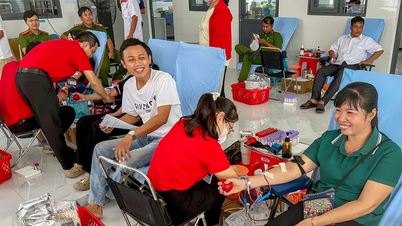

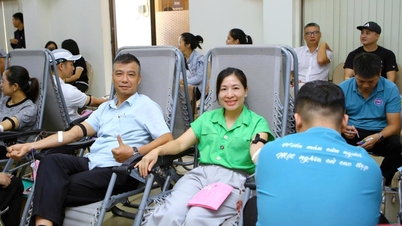

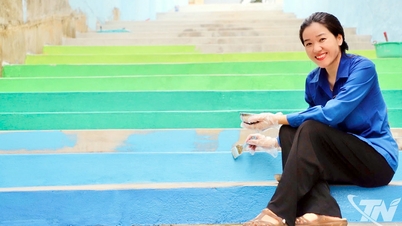

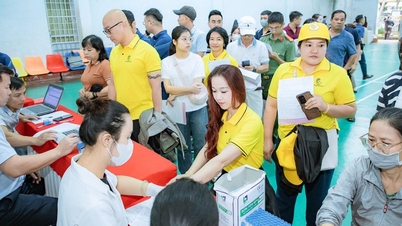

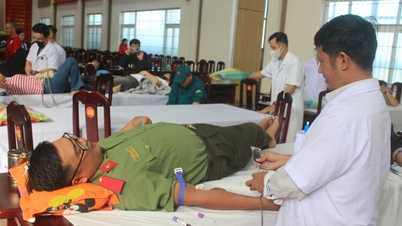


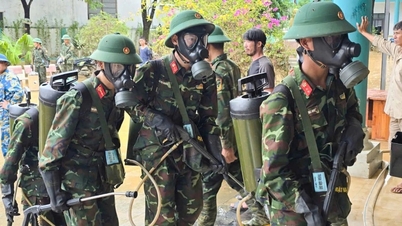



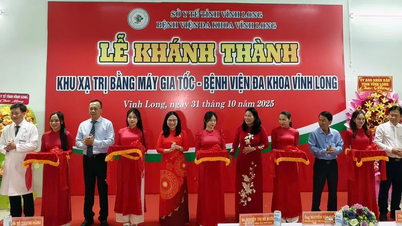

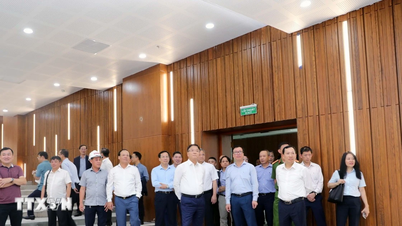


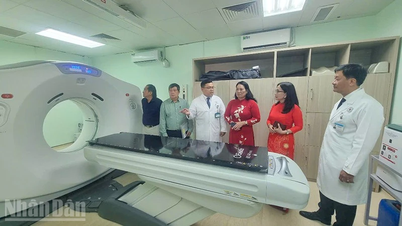









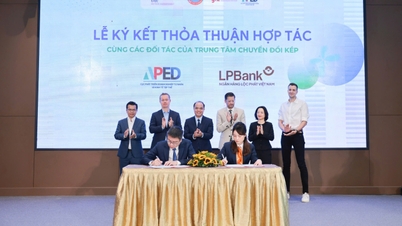
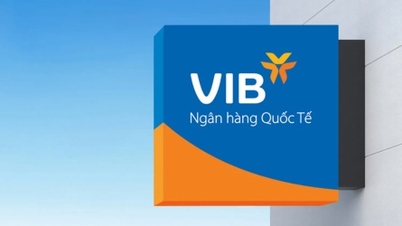







































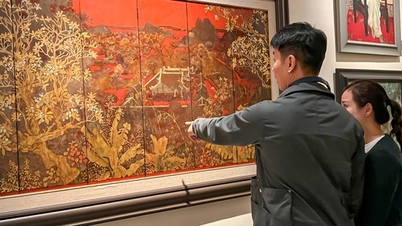







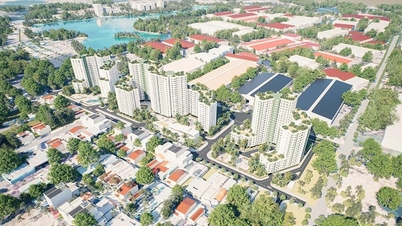

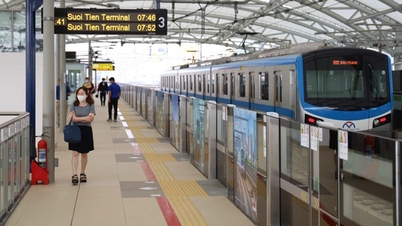
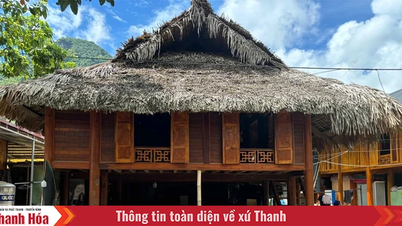




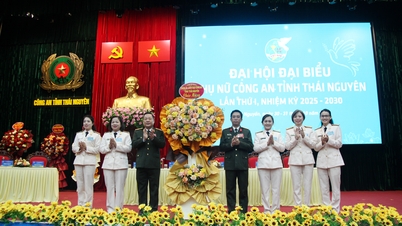













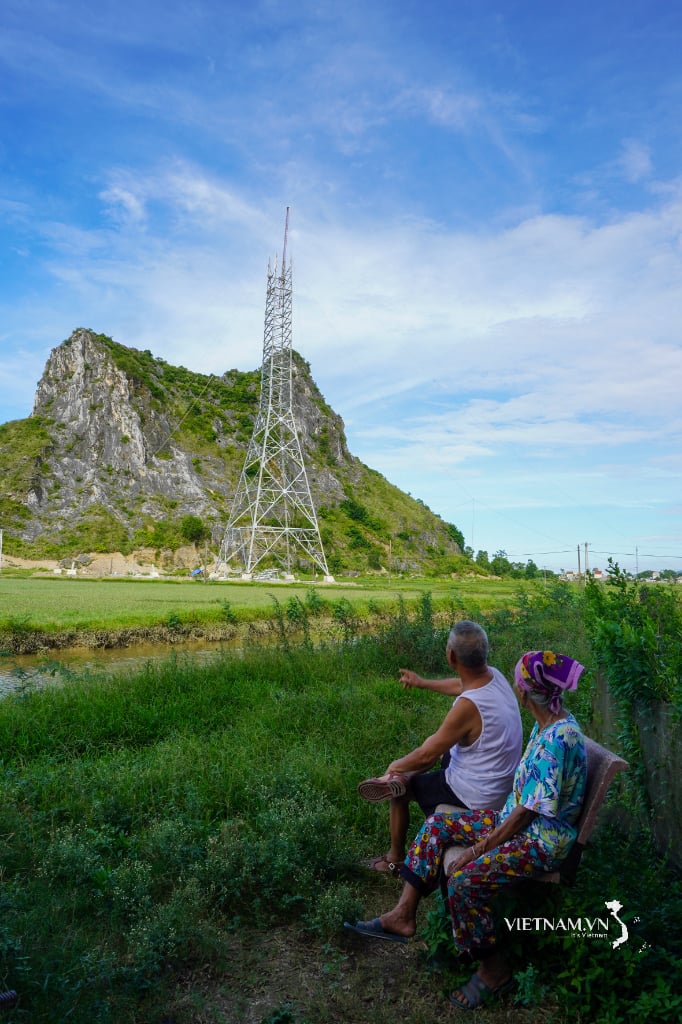


Comment (0)